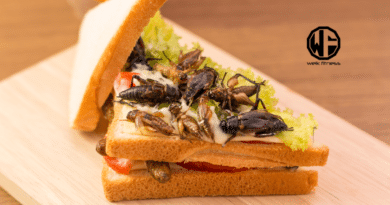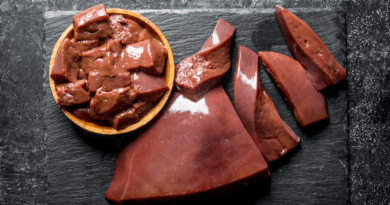6 Types of Vegetarian Diets: Do You Know the Differences?
Are you a vegetarian? Your diet is full of plants and fruits, right? Well, if you are someone who thinks vegetarian diets are all about plants, read this article through to the end.
Plant-based diets have been gaining a lot of popularity over the past few years. Don’t believe me? Go look at Instagram profiles, they’ll tell you, just look at people’s bios (LOL). There are several reasons for people to make the switch to a plant-based lifestyle and nutrition plan, the primary reasons being environmental and health benefits, plus ethical issues.
Related Article: Should You Try a Vegan Diet? Types, Benefits, and MORE!
Many people tend to confuse a vegan diet with a vegetarian diet. However, you will be surprised to know that a vegan diet is just a type of vegetarian diet that falls under the same umbrella.

In total, there are six main types of vegetarian diets. Let’s have a closer look at the segments of the vegetarian diet, which can help you choose which dietary variation is perfect for you should you feel the urge to make some drastic changes to your current nutrition plan.
The Types of Vegetarian Diets
Below are the six types of vegetarian diets that we will be discussing in this article and breaking down what each entails.
1. Veganism
Veganism is the strictest form of the vegetarian diet and excludes all animal-derived food items like eggs, meat, fish, and more. Not only this, but it also includes excluding the by-products like honey, gelatin, and more.
Veganism is not just a form of diet but a lifestyle as it extends beyond food choices. Vegans avoid using consumer products that involve animal exploitation.
The vegan diet is entirely based on plants and includes food items like fruits, vegetables, nuts, seeds, lentils, and more. The diet tends to substitute animal products with plant-based alternatives like tofu, jackfruit, etc.
Related Article: A New Diet Study Says Serve Yourself
The vegan diet is lower in nutrients, and hence, healthcare professionals recommend taking supplements to fill in nutritional gaps in regard to vitamins and minerals like B12, Zinc, Omega-3, and more.
2. Pescatarian Diet
The word “Pesce” is an Italian word meaning fish. A pescatarian diet is one that includes a lot of fish. Someone on a pescatarian diet can consume fish-based products like tuna, salmon, sushi, etc., but avoid meat products like chicken, beef, etc.
Now, coming to dairy products and eggs, it comes down to personal choice whether someone wants to include such items to eliminate them.
A pescatarian diet contains Omega-3 fatty acid (naturally present in fish), which is otherwise lacking in some of the other types of vegetarian diets.
3. Flexitarian Diet
As the name suggests, a flexitarian diet is flexible, meaning it allows some amount of animal products to be present in the diet. A flexitarian diet emphasizes more on including plant-based products than restricting animal-based products. It allows you to enjoy animal-based products in moderation.
Related Article: Flexitarian Diet: The Ultimate Guide for Beginners
The main aim of a flexitarian diet is to get most of the protein sources from plant-based food when possible, consume limited sugar and processed food, and incorporate animal products occasionally into meals.
Click here to continue reading…

Do you need content or copy for your business or website? Let me know how I can help! We also own Writing Rebels if your company is not in the health and fitness industry.
Below are some great resources:
- Lack of Content Creation Could Be Slowing Your Growth
- Why My Writing Style Caters to the Customer, Not the Client
- Content Writer vs Supplement Copywriter: Who Do You Need?
- The SEO Power of an Authoritative Content Writer
- Is Your Business Taking Advantage of Fitness Articles?
- 23 Content Marketing Statistics & Why They Should Matter to You





